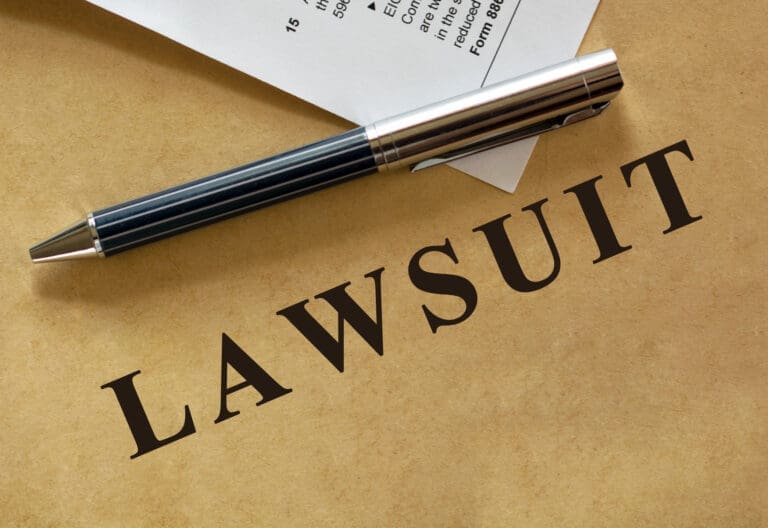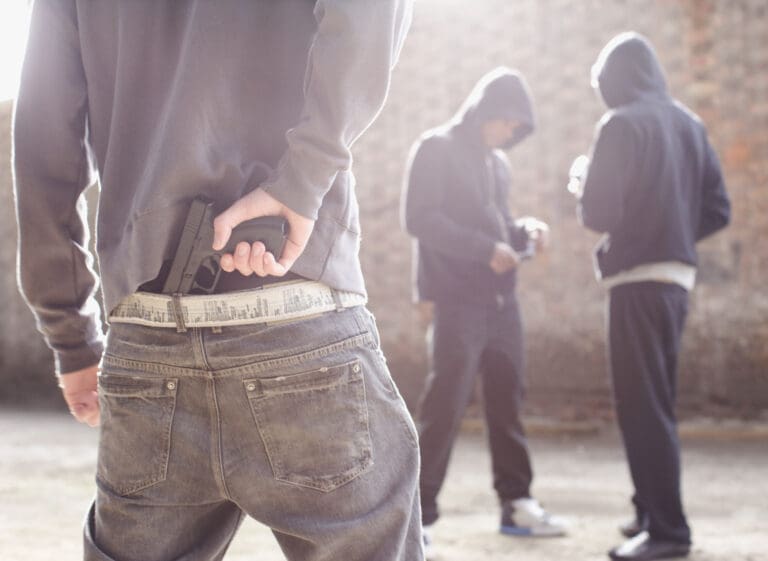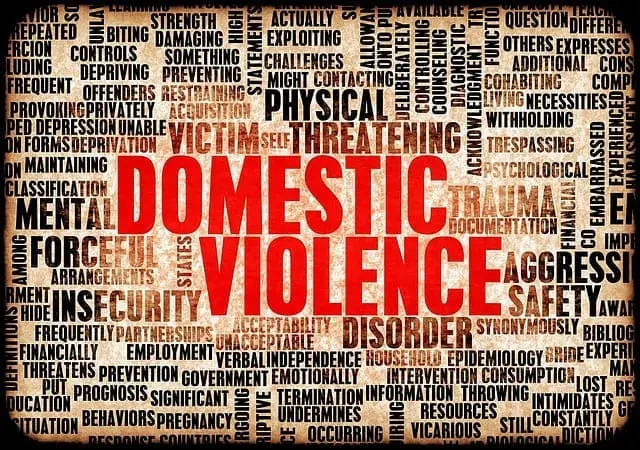
When someone faces the daunting reality of arson charges, the consequences can be life-altering. The mere accusation of intentionally setting a fire can bring not only the threat of severe criminal penalties but also lasting damage to reputation, career, and personal relationships. Yet, in the American legal system, the presumption of innocence remains a bedrock principle. The path to having arson charges dropped is paved with strategic legal defenses, careful examination of evidence, and a deep understanding of both the law and the science behind fire investigations. For those navigating this complex terrain, knowing which legal defenses work in court is essential to protecting one’s rights and future.
Incendio provocado is a unique crime in that it often relies heavily on circumstantial evidence and expert testimony. Unlike many other criminal charges, there is rarely a direct eyewitness to the act itself. Instead, prosecutors must build their case on forensic analysis, motive, opportunity, and sometimes, the defendant’s own statements. This reliance on interpretation and inference creates opportunities for skilled abogados penalistas to challenge the prosecution’s narrative and expose weaknesses in the case.
The prosecution bears the burden of proving, beyond a reasonable doubt, that the accused not only caused the fire but did so with criminal intent. This is a high bar, and it is here that many arson cases falter. Defense strategies often begin by attacking the sufficiency and reliability of the evidence. For example, fire investigation errors are not uncommon, especially when investigators rely on outdated or debunked forensic techniques. The National Fire Protection Association (NFPA) has updated its guidelines over the years, and courts have recognized that many past convictions were based on flawed science. Defense teams now routinely bring in independent experts to review the work of fire marshals and challenge their conclusions.
One of the most effective ways to secure arson charges dropped is to demonstrate that the fire was accidental or caused by natural forces. Electrical faults, lightning strikes, spontaneous combustion, and even careless smoking can all result in devastating fires. By presenting credible alternative explanations, the defense can create reasonable doubt about the defendant’s guilt. In some cases, forensic fire analysis reveals that what appeared to be accelerant patterns were actually the result of flashover or other natural fire phenomena. When the scientific evidence does not support the prosecution’s theory, judges and juries are often reluctant to convict.
Another powerful defense is the use of alibi evidence. If the accused can show, through phone records, surveillance footage, or credible witness testimony, that they were elsewhere at the time of the fire, the prosecution’s case can quickly unravel. In today’s digital age, GPS data, social media activity, and electronic transactions can all serve as compelling proof of a defendant’s whereabouts. Defense attorneys are increasingly adept at leveraging technology to build robust alibis and cast doubt on the prosecution’s timeline.
The issue of intent is central to any arson case. The law distinguishes between intentional acts and reckless or negligent behavior. If the defense can show that the fire was the result of carelessness rather than a deliberate act, the charges may be reduced or dismissed altogether. For example, a person who accidentally starts a fire while grilling in their backyard may be guilty of negligence, but not arson. The distinction is critical, as the penalties for arson are far more severe than those for reckless burning or property damage.
Expert witness arson testimony can be a double-edged sword. While the prosecution often relies on fire investigators to establish the cause and origin of a blaze, the defense can counter with its own experts. These professionals may challenge the methodology used by the state’s witnesses, point out inconsistencies in the evidence, or offer alternative explanations for the fire’s behavior. In recent years, courts have become more receptive to challenges based on the Daubert standard, which requires that expert testimony be both relevant and reliable. Defense attorneys who can demonstrate that the prosecution’s experts relied on junk science or failed to follow proper protocols can often persuade judges to exclude critical evidence.
Wrongful arson accusation is a real and pressing concern. Innocent people have been convicted based on faulty investigations, coerced confessions, or misinterpretation of evidence. The Innocence Project and other advocacy groups have documented numerous cases where individuals spent years in prison before being exonerated by new evidence or advances in fire science. Defense attorneys must be vigilant in scrutinizing every aspect of the prosecution’s case, from the initial investigation to the handling of physical evidence.
The legal process for defending against arson charges is complex and often begins long before a case reaches the courtroom. Early intervention by a skilled abogado penalista can make a significant difference. Attorneys may file motions to suppress evidence obtained through illegal searches, challenge the admissibility of expert testimony, or seek to have charges dismissed for lack of probable cause. In some cases, aggressive pretrial advocacy can persuade prosecutors to drop charges before trial, sparing the accused the ordeal of a public trial and the risk of conviction.
Court-proven defenses en arson cases often hinge on the credibility of witnesses and the strength of the scientific evidence. Cross-examination of prosecution witnesses can reveal inconsistencies, biases, or gaps in their testimony. Defense attorneys may also present character witnesses to attest to the defendant’s good reputation and lack of motive. In cases where the prosecution’s evidence is weak or circumstantial, a well-crafted defense can tip the scales in favor of acquittal.
El papel de fire investigation errors cannot be overstated. Many arson cases are built on the assumption that certain burn patterns or residues indicate the use of accelerants. However, modern fire science has shown that these indicators are not always reliable. For example, crazed glass, once thought to be a sign of rapid heating from accelerants, is now known to result from rapid cooling by water. Defense experts who can explain these nuances to a jury can be instrumental in securing acquittals or dismissals.
Lack of intent defense is another common strategy. Prosecutors must prove that the defendant acted with the specific intent to cause a fire. If the defense can show that the fire was the result of an accident, mistake, or even a medical condition such as sleepwalking, the charges may not stand. In some cases, psychological evaluations can support claims that the defendant lacked the capacity to form the requisite intent.
En arson legal process is fraught with procedural hurdles and opportunities for defense attorneys to challenge the state’s case. From the initial arrest to the filing of charges, every step must comply with constitutional protections. Illegal searches, coerced confessions, and violations of the right to counsel can all form the basis for motions to suppress evidence or dismiss charges. Defense attorneys who are well-versed in these procedural safeguards can often find leverage points that lead to favorable outcomes for their clients.
Arson case dismissal is not uncommon when the defense can demonstrate that the prosecution’s evidence is insufficient or unreliable. In some jurisdictions, prosecutors are required to present their evidence to a grand jury or at a preliminary hearing. If the defense can show that the state’s case does not meet the legal standard for probable cause, the charges may be dismissed before trial. Even after a case has gone to trial, judges have the authority to grant directed verdicts of acquittal if the evidence is lacking.
El uso de forensic fire analysis has evolved significantly in recent years. Advances in computer modeling, chemical analysis, and fire dynamics have made it possible to reconstruct fires with greater accuracy. Defense attorneys who stay abreast of these developments can use them to challenge outdated or unsupported prosecution theories. In some cases, new evidence uncovered through advanced forensic techniques has led to the reopening of old cases and the exoneration of wrongfully convicted individuals.
Criminal charges dropped in arson cases often result from a combination of factors: weak evidence, credible alternative explanations, procedural errors, and effective advocacy. Defense attorneys must be relentless in their pursuit of the truth, leaving no stone unturned in their investigation of the facts. This includes interviewing witnesses, reviewing surveillance footage, consulting with experts, and challenging every aspect of the prosecution’s case.
El impacto de arson charges dropped extends far beyond the individual defendant. Families, businesses, and entire communities can be affected by the outcome of these cases. Insurance claims, property values, and public safety concerns all come into play. Defense attorneys must be mindful of these broader implications as they craft their strategies and advocate for their clients.
Fire investigation errors are not limited to the initial scene. The handling of evidence, chain of custody, and laboratory analysis can all be sources of error or misconduct. Defense attorneys must scrutinize every step of the process to ensure that evidence has not been contaminated, lost, or tampered with. In some cases, independent testing of fire debris or accelerant residues can yield results that contradict the prosecution’s findings.
Expert witness arson testimony is increasingly subject to challenge under the Daubert standard, which requires that scientific evidence be both relevant and reliable. Defense attorneys who can demonstrate that the prosecution’s experts relied on outdated or discredited methods can often persuade judges to exclude their testimony. This can be a decisive factor in securing dismissals or acquittals.
Wrongful arson accusation is a sobering reality. The pressure to solve high-profile fires can lead investigators to focus on convenient suspects, overlook exculpatory evidence, or rush to judgment. Defense attorneys must be vigilant in protecting their clients from these dangers, insisting on a thorough and unbiased investigation.
En arson legal process is also shaped by broader trends in criminal justice. The rise of forensic science, the increasing use of technology in investigations, and the growing awareness of wrongful convictions have all influenced how arson cases are prosecuted and defended. Defense attorneys who stay informed about these trends are better equipped to challenge the state’s case and protect their clients’ rights.
Alibi evidence arson is a particularly effective defense when supported by credible documentation. In today’s interconnected world, digital footprints can provide powerful proof of a defendant’s location at the time of the fire. Cell phone records, credit card transactions, and social media posts can all be used to establish an alibi and cast doubt on the prosecution’s timeline.
Criminal defense attorney involvement early in the process is critical. Attorneys can advise clients on how to respond to police questioning, protect their rights during searches, and begin building a defense before charges are even filed. In some cases, early intervention can prevent charges from being filed at all.
Arson case dismissal is often the result of a cumulative process. Defense attorneys may file multiple motions, challenge various aspects of the prosecution’s case, and negotiate with prosecutors to secure favorable outcomes. Persistence, attention to detail, and a deep understanding of both the law and the science of fire investigation are essential qualities for success.
Forensic fire analysis continues to evolve, with new techniques and technologies emerging regularly. Defense attorneys who invest in ongoing education and collaboration with experts are better positioned to challenge the prosecution’s case and secure acquittals or dismissals for their clients.
Court-proven defenses in arson cases are grounded in a thorough understanding of the law, the facts, and the science. Defense attorneys who can weave these elements together into a compelling narrative are often able to persuade judges and juries to acquit or dismiss charges.
The stakes in arson cases are high, and the consequences of a conviction can be devastating. Yet, with the right defense strategy, it is possible to have arson charges dropped and to move forward with one’s life. The key is to act quickly, seek experienced legal counsel, and challenge every aspect of the prosecution’s case.
Citations:
- Effective Defenses for Arson Charges
- Legal Defenses for Accidental Fire Accusations
- Newsom Signs Order for Urban Firestorm Preparedness
- Case Dismissed in Amazon Facility Fire
- Guide to Arson Legal Defense
- Understanding Arson Criminal Charges
- Building a Defense Against Arson Charges
- Defending Against an Arson Case
- Coordinating Arson Investigation Resources
- Arson as a Violent Crime
- Federal Arson Charges Overview
- Insights on Arson Charges in California
- Arson Defense to Protect Your Future
- Defending Aggravated Arson in Illinois
- Defenses Against Arson Crime
- Getting Arson Charges Dropped
- Can Criminal Cases Be Dismissed
- Arson Investigation Challenges
- Arson Lawyer Services in NYC
- Dismissing Domestic Violence Charges
- Arson Charges and Legal Defenses
- New York Arson Lawyer Defense
- Effective Defense Tactics in Court
- Pentagon Press Briefing Transcript
- Defense Workforce Changes and Confusion
- California Environmental Policies Under Trump
- Pentagon to Fire Thousands of Workers
- Judge Cannon Impacts Trump Documents Case
- Arson Charges Dropped in Albany
- Losch Family Farm Arson Case
- Caldor Fire Suspect Charges Dropped
- Wrongful Arrest in Jail Fire Case
- Denver Arson Case and Google Warrant
- Legal Definition of Arson
- Polysemy and Legal Interpretation
- Reverse Keyword Searches in Law Enforcement
- Failure of Mixed Motives Jurisprudence
- ACLU Amicus Brief in Snyder Case
- Self-Defense and Second Amendment Analysis
- Federal Appellate Case on Arson
- Wikipedia Overview of Arson
- FBI Crime Statistics on Arson
- Montana Wildfire Investigation Manual
- Glossary of Legal Terms
- Guide to Arson Charges and Defenses
- Arson Defense in Criminal Law
- Defense Attorney Perspective on Arson
- Is Arson a Felony in Georgia
- Expert Testimony in Arson Cases
- Step-by-Step Arson Investigation Procedure
- Legal Repercussions of Arson
- Process of Investigating Arson Cases
- Arson Defense Strategies in Denver
- Criminal Defense Resources for Arson
- Reducing Arson Charge to Misdemeanor
- Fighting an Arson Charge
- Arson Defense by Goldberger Dubin
- Support Resources for Fire Victims
- Trump Military Orders on Transgender DEI
- Pentagon Changes Under Hegseth Leadership
- BBC News on Arson Incident
- Ballot Box Arson in Portland
- Judge Dismisses Charge Against Arizona Mom
- Defending Against Arson Charges
- Justification Defenses in Arson Cases
- New York Penal Law on Arson
- YouTube Video on Arson Defense








